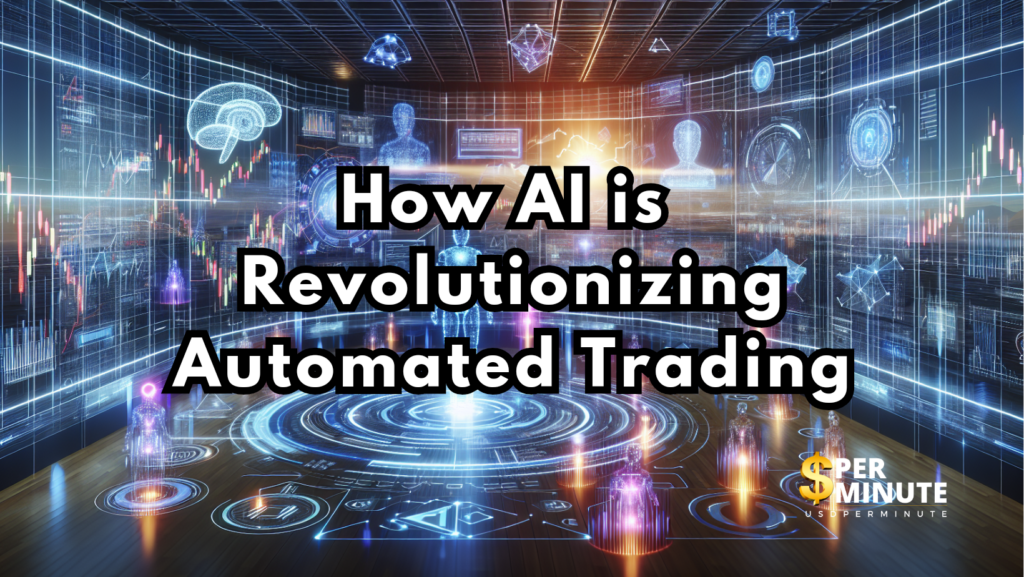How AI is Revolutionizing Automated Trading

Automated trading has been a game-changer in the financial markets for years, allowing traders to execute orders without human intervention. However, the integration of Artificial Intelligence (AI) into automated trading systems is reshaping the landscape even further. This article explores how AI is transforming automated trading, the benefits it brings, and its impact on the trading industry.
1. Enhanced Decision-Making with AI
AI-powered algorithms analyze vast amounts of data at lightning speed, enabling traders to make more informed decisions. Traditional automated trading systems rely on predefined rules and historical data, but AI goes beyond by learning from real-time data and adjusting strategies on the fly. This capability allows AI-driven systems to adapt to market changes quickly, minimizing risks and maximizing profits.
2. Predictive Analytics for Market Trends
AI excels at pattern recognition and predictive analytics, which are crucial in trading. By analyzing historical data, news articles, social media trends, and even geopolitical events, AI can predict market movements with higher accuracy. This predictive power gives traders an edge in identifying profitable opportunities before they become apparent to the broader market.
3. Improved Risk Management
Risk management is a critical aspect of trading, and AI has significantly improved this area. AI systems can assess the risk associated with each trade in real time, taking into account a myriad of factors such as market volatility, economic indicators, and trader behavior. This allows for dynamic risk adjustments, ensuring that traders are better protected against potential losses.
4. Algorithmic Trading with AI
Algorithmic trading has been around for decades, but AI is pushing it to new heights. AI-driven algorithms can develop and refine trading strategies without human input, continuously learning and improving from each trade. This self-learning capability means that AI algorithms can adapt to changing market conditions, providing traders with a more robust and flexible trading tool.
5. Increased Efficiency and Speed
One of the most significant advantages of AI in automated trading is the increased efficiency and speed it offers. AI can process vast amounts of data and execute trades in milliseconds, far faster than any human could. This speed is particularly crucial in high-frequency trading, where even microseconds can make a difference between a profitable trade and a loss.
6. Customization and Personalization
AI allows for a high degree of customization and personalization in trading strategies. Traders can define specific goals, risk tolerance, and market conditions, and AI systems will tailor their strategies accordingly. This level of personalization was previously unattainable with traditional automated trading systems, making AI a powerful tool for traders with diverse needs.
7. Challenges and Considerations
While AI brings numerous benefits to automated trading, it also presents challenges. The complexity of AI systems can make them difficult to understand and monitor, leading to potential risks if not managed correctly. Additionally, the reliance on AI raises ethical concerns about market manipulation and the role of human oversight in trading.
Conclusion
AI is undeniably changing the way people use automated trading, bringing enhanced decision-making, predictive analytics, improved risk management, and increased efficiency. As AI technology continues to evolve, it is likely that its influence on trading will only grow stronger, offering traders new tools and opportunities to succeed in the financial markets. However, it is essential for traders to remain vigilant and consider the challenges and ethical implications that come with AI-driven trading.